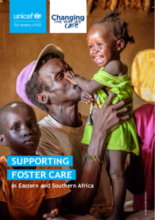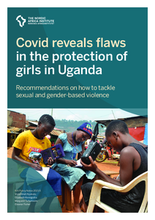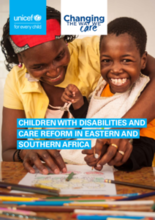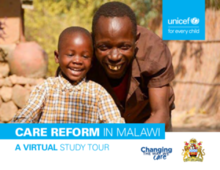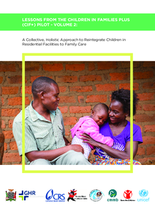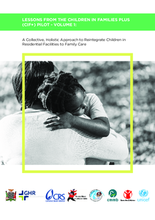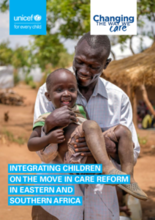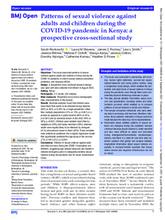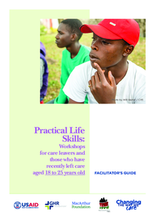Displaying 131 - 140 of 665
This paper examines the nature and benefits of foster care and identifies some of the key challenges associated with this form of care in Eastern and Southern Africa. It outlines the elements of an enabling environment needed for successful large-scale foster care programmes, including legislation, guidance, changes to social norms, coordination mechanisms, and a strong social service workforce. The paper also provides lessons learnt from the region on how to support each stage of the foster care process.
Through 2020 and 2021, the COVID-19 pandemic led to prolonged school closures in Uganda. These closures exacerbated sexual and gender-based violence (SGBV) against girls.
This paper highlights the importance of placing support for children with disabilities and their families at the centre of care reform efforts, and provides examples from across the region of how this can be done.
This virtual study tour aims to provide you with an overview of care reform in Malawi from the comfort of your own home. Care reform relates to the care of children. It refers to efforts to improve the legal and policy frameworks, structures, services, supports and resources that determine and deliver alternative care, prevent family separation and support families to care for children well.
Building on the CIF+ Learning Brief Vol 1.pdf, Volume 2 draws from CIF+ partner programming experience, achievements and lessons learned. This document outlines lessons for stakeholders that are interested in child reintegration efforts and highlights examples of the pilot as it works to support children and families in Zambia.
The CIF+ pilot is a collaborative, locally led, intensive effort with the main aim to reintegrate 200 children from Child Care Facilities (CCFs) in Lusaka district, into families over a period of three years (2019-2021).
This short paper examines why children on the move need to be included in care reform in the region, how the care needs of these boys and girls can be met, and what lessons can be learned from the care of children on the move to inform the care of children more broadly.
This study examined patterns of sexual violence against adults and children in Kenya during the COVID-19 pandemic to inform sexual violence prevention, protection, and response efforts.
This participants handbook has come into being by care leavers for care leavers. It has been developed based on the myriad of challenges shared and experienced by care leavers, hoping with the hope that it will support others leaving care.
This series of resources are designed by care leavers for care leavers to help equip youth for life outside of care, strengthen coping strategies, foster safety nets and community networks. It builds from earlier life skills work that the Kenyan Society of Care Leavers has done, supported by Changing the Way We Care with global best practices.

